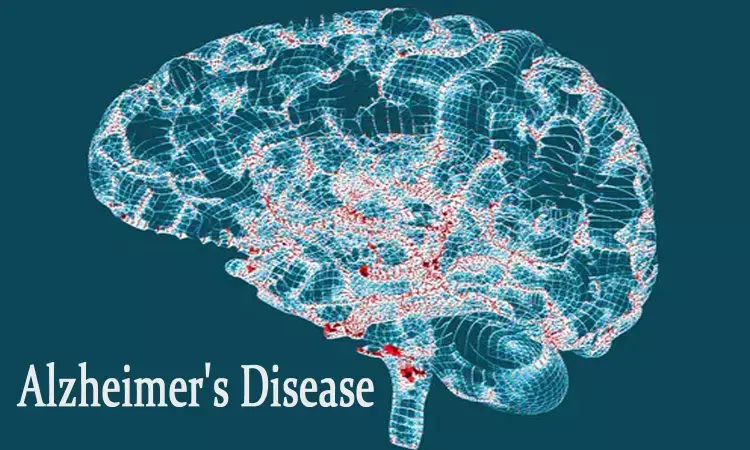- Home
- Medical news & Guidelines
- Anesthesiology
- Cardiology and CTVS
- Critical Care
- Dentistry
- Dermatology
- Diabetes and Endocrinology
- ENT
- Gastroenterology
- Medicine
- Nephrology
- Neurology
- Obstretics-Gynaecology
- Oncology
- Ophthalmology
- Orthopaedics
- Pediatrics-Neonatology
- Psychiatry
- Pulmonology
- Radiology
- Surgery
- Urology
- Laboratory Medicine
- Diet
- Nursing
- Paramedical
- Physiotherapy
- Health news
- Fact Check
- Bone Health Fact Check
- Brain Health Fact Check
- Cancer Related Fact Check
- Child Care Fact Check
- Dental and oral health fact check
- Diabetes and metabolic health fact check
- Diet and Nutrition Fact Check
- Eye and ENT Care Fact Check
- Fitness fact check
- Gut health fact check
- Heart health fact check
- Kidney health fact check
- Medical education fact check
- Men's health fact check
- Respiratory fact check
- Skin and hair care fact check
- Vaccine and Immunization fact check
- Women's health fact check
- AYUSH
- State News
- Andaman and Nicobar Islands
- Andhra Pradesh
- Arunachal Pradesh
- Assam
- Bihar
- Chandigarh
- Chattisgarh
- Dadra and Nagar Haveli
- Daman and Diu
- Delhi
- Goa
- Gujarat
- Haryana
- Himachal Pradesh
- Jammu & Kashmir
- Jharkhand
- Karnataka
- Kerala
- Ladakh
- Lakshadweep
- Madhya Pradesh
- Maharashtra
- Manipur
- Meghalaya
- Mizoram
- Nagaland
- Odisha
- Puducherry
- Punjab
- Rajasthan
- Sikkim
- Tamil Nadu
- Telangana
- Tripura
- Uttar Pradesh
- Uttrakhand
- West Bengal
- Medical Education
- Industry
Antioxidant intake may help prevent Alzheimer's disease, suggests study

Oxidative stress is a unifying paradigm of functional and structural brain changes observed in Alzheimer's disease.
Researchers team at Mohamed Haddad of the Institut national de la recherche scientifique (INRS) has shown that oxidative markers, known to be involved in Alzheimer's disease, show an increase up to five years before the onset of the disease. Oxidation may be a marker of Alzheimer's disease and an oxidation-antioxidant imbalance in the blood an early indicator.
Thus the study provides an avenue for preventive intervention: the antioxidants intake.
The results of the study have been published in the Alzheimer's & Dementia: Diagnosis, Assessment & Disease Monitoring (DADM) journal.
"Given that there is an increase in oxidative stress in people who develop the disease, we may regulate the antioxidant systems. For example, we could modulate the antioxidant systems, such as apolipoproteins J and D, which transport lipids and cholesterol in the blood and play an important role in brain function and Alzheimer's disease. Another avenue would be to increase the intake of antioxidants through nutrition", says Professor Ramassamy.
Unlike the current set of invasive and expensive tests used to diagnose Alzheimer's disease, the oxidative markers discovered by Professor Ramassamy's research team can be detected by a blood test. These markers are found in plasma extracellular vesicles, which are pockets released by all cells in the body, including those in the brain.
The research team focused specifically on the "sporadic" Alzheimer's disease, the most common form of the disease which results primarily from the presence of the APOE4 susceptibility gene. This same form of the disease had been studied by the team for other early markers.
"By identifying oxidative markers in the blood of individuals at risk five years before the onset of the disease, we could make recommendations to slow the onset of the disease and limit the risks", scientists noted.
This breakthrough brings new hope to Alzheimer's research. Once the disease is symptomatic, it is difficult, if not impossible, to reverse it.
https://alz-journals.onlinelibrary.wiley.com/doi/10.1002/dad2.12231
Hina Zahid Joined Medical Dialogue in 2017 with a passion to work as a Reporter. She coordinates with various national and international journals and association and covers all the stories related to Medical guidelines, Medical Journals, rare medical surgeries as well as all the updates in the medical field. Email: editorial@medicaldialogues.in. Contact no. 011-43720751
Dr Kamal Kant Kohli-MBBS, DTCD- a chest specialist with more than 30 years of practice and a flair for writing clinical articles, Dr Kamal Kant Kohli joined Medical Dialogues as a Chief Editor of Medical News. Besides writing articles, as an editor, he proofreads and verifies all the medical content published on Medical Dialogues including those coming from journals, studies,medical conferences,guidelines etc. Email: drkohli@medicaldialogues.in. Contact no. 011-43720751


